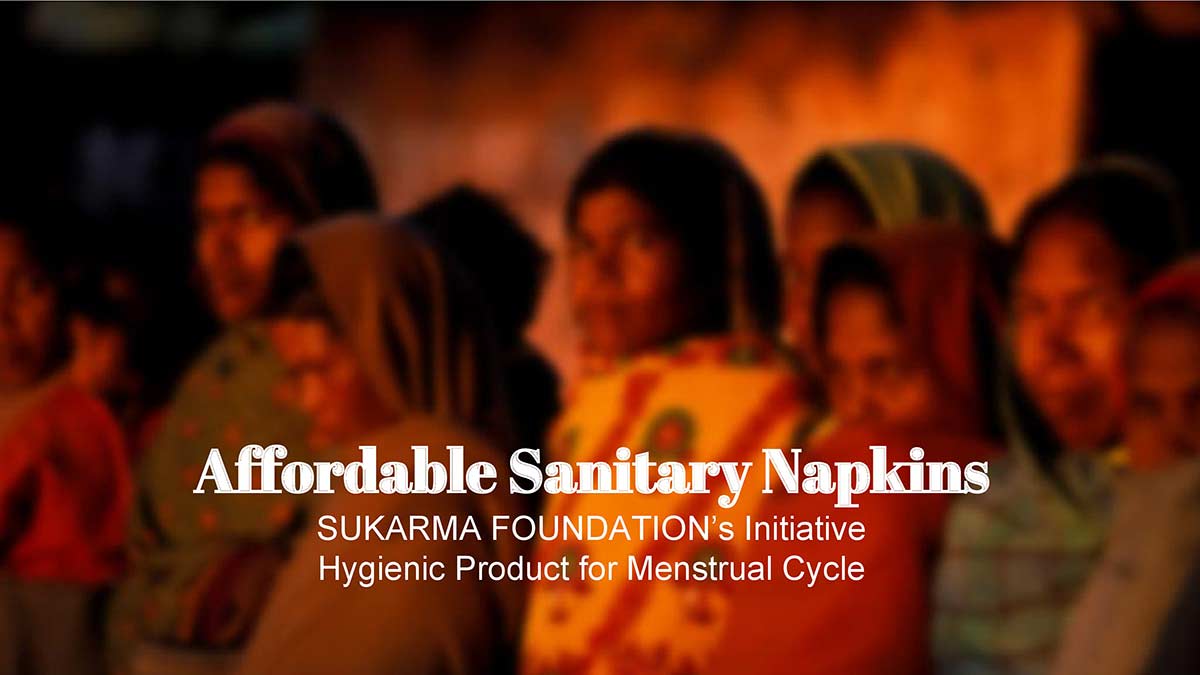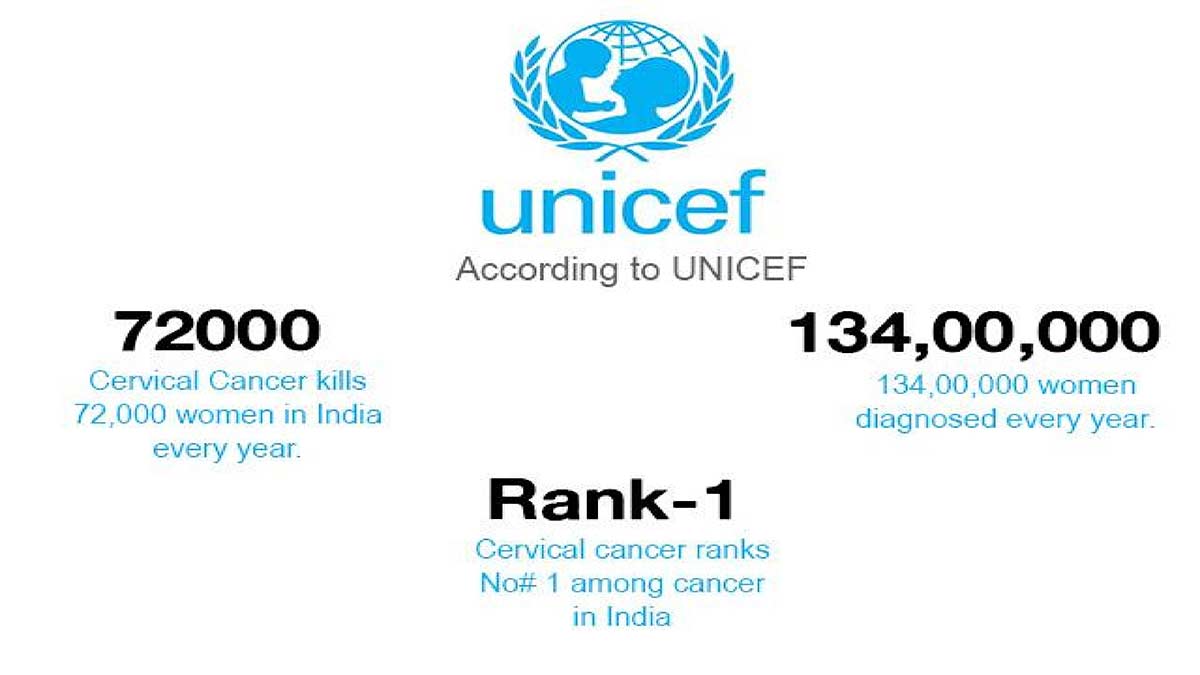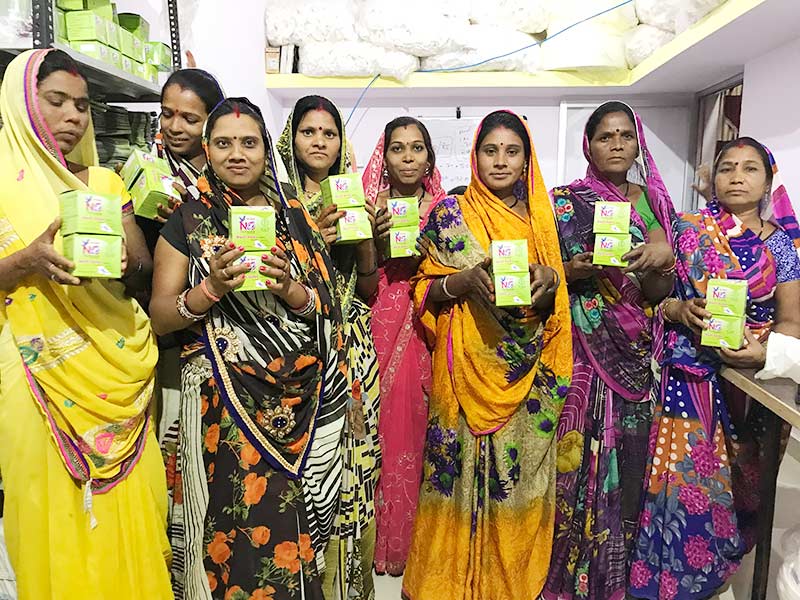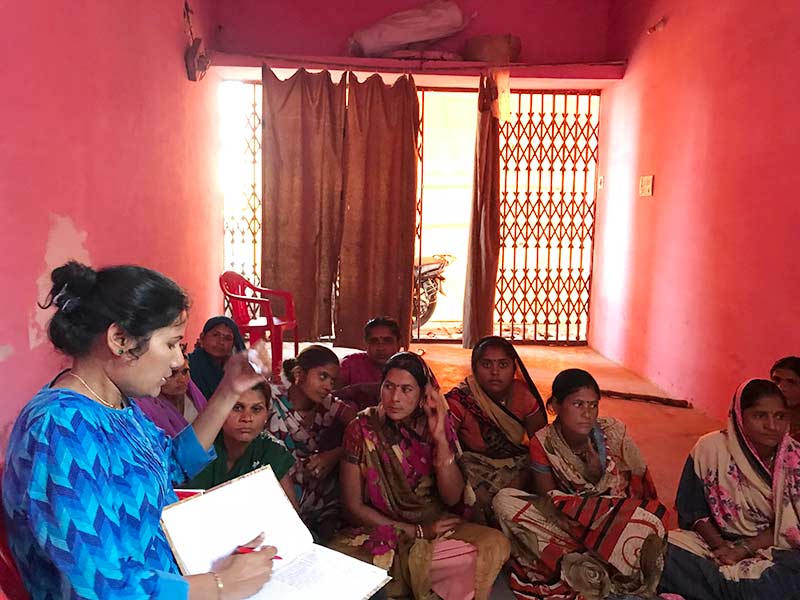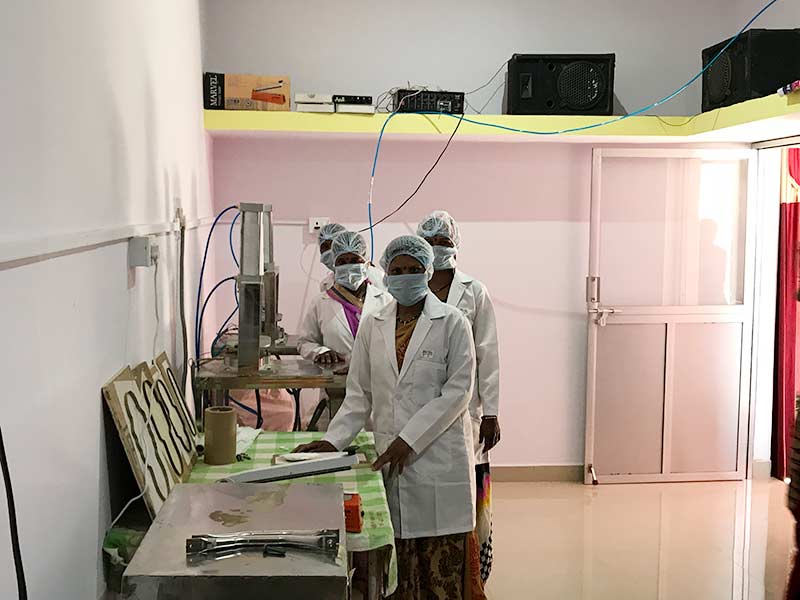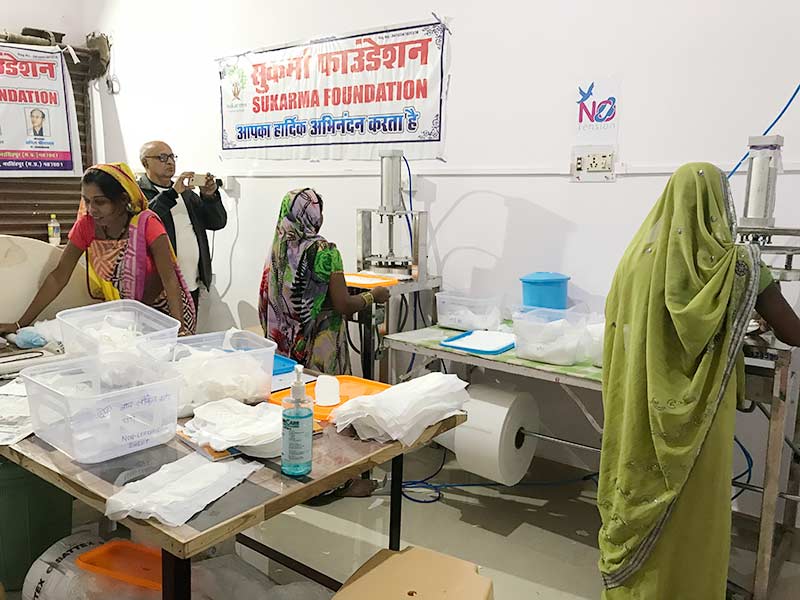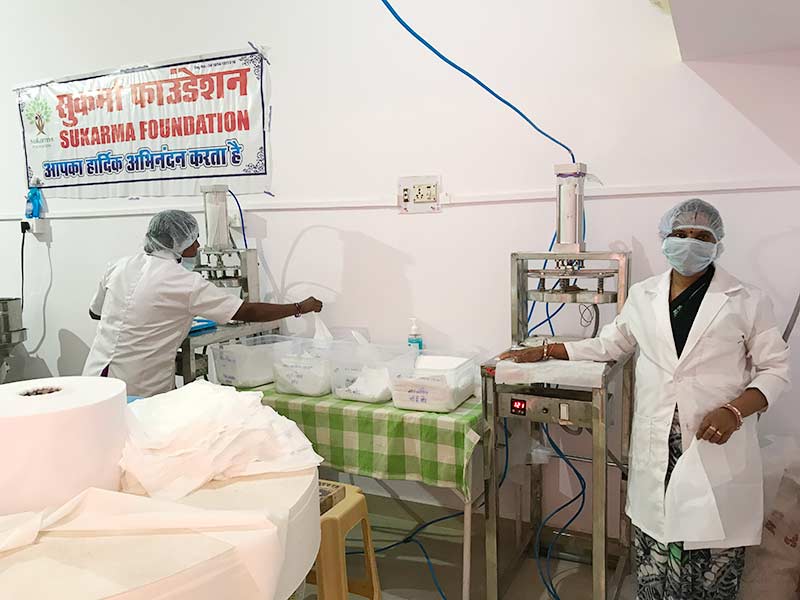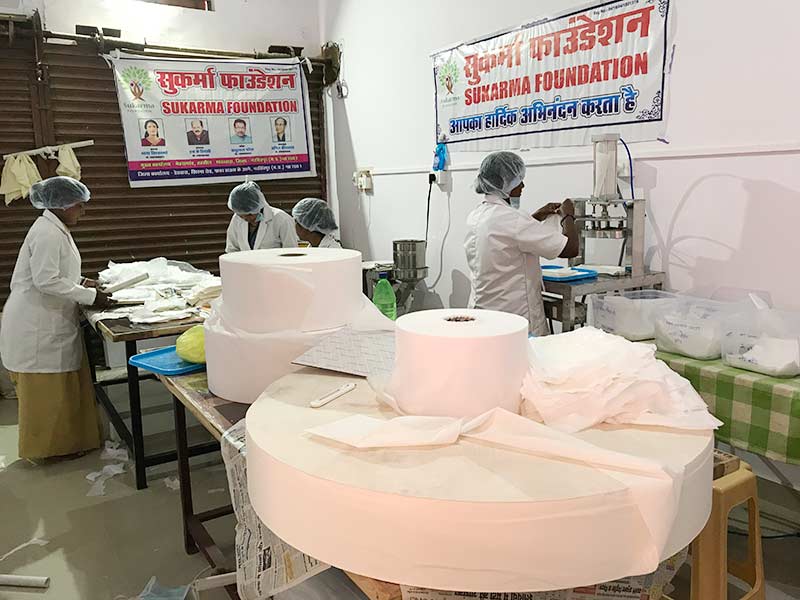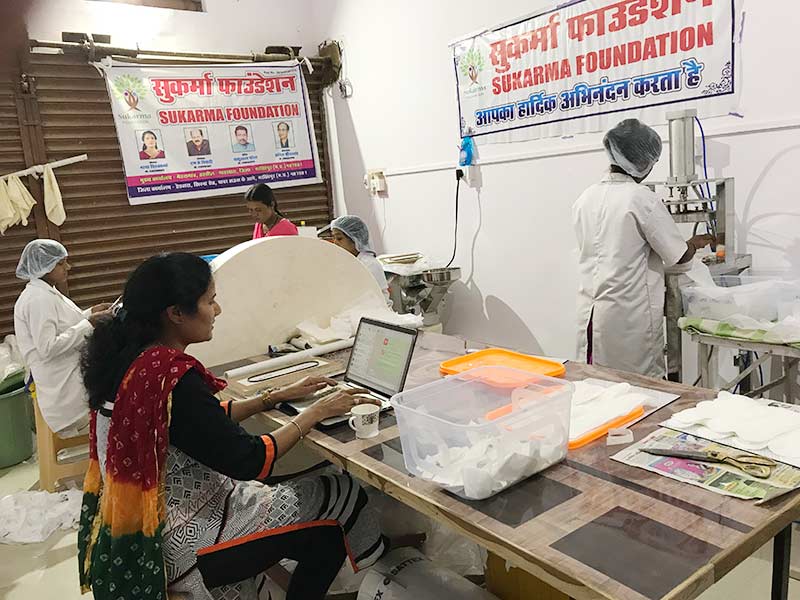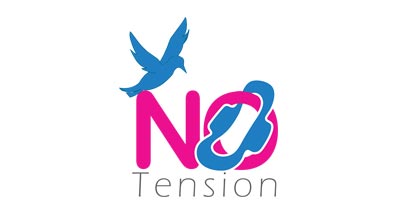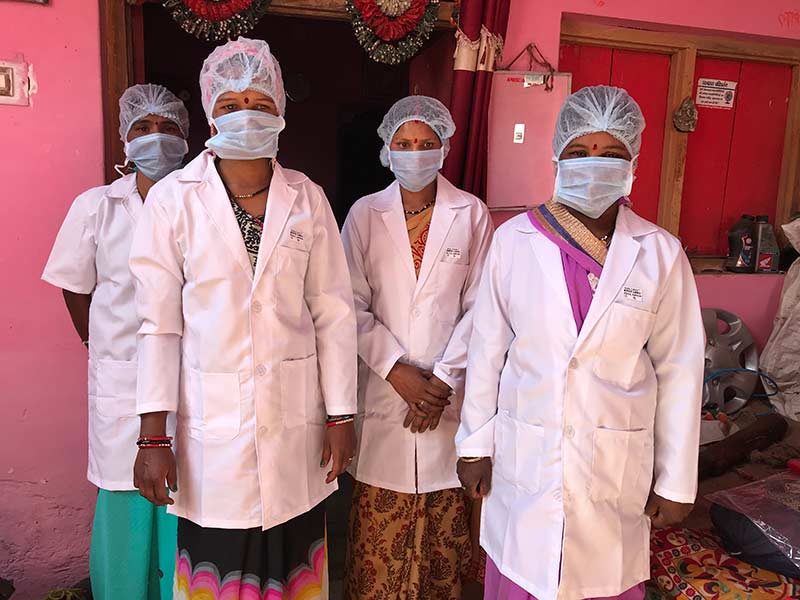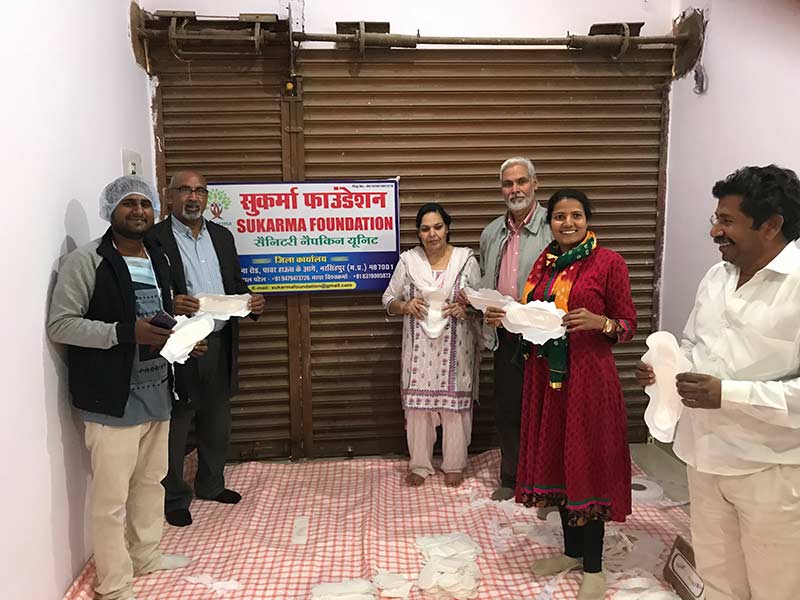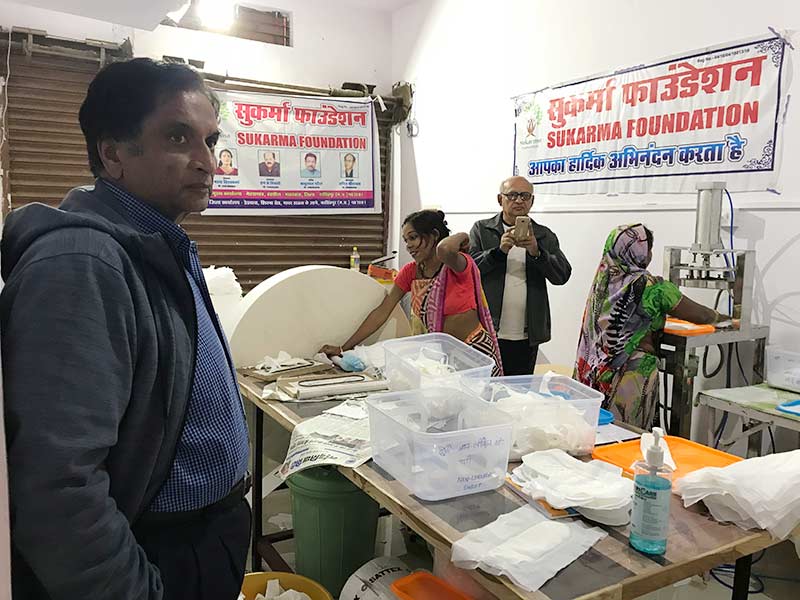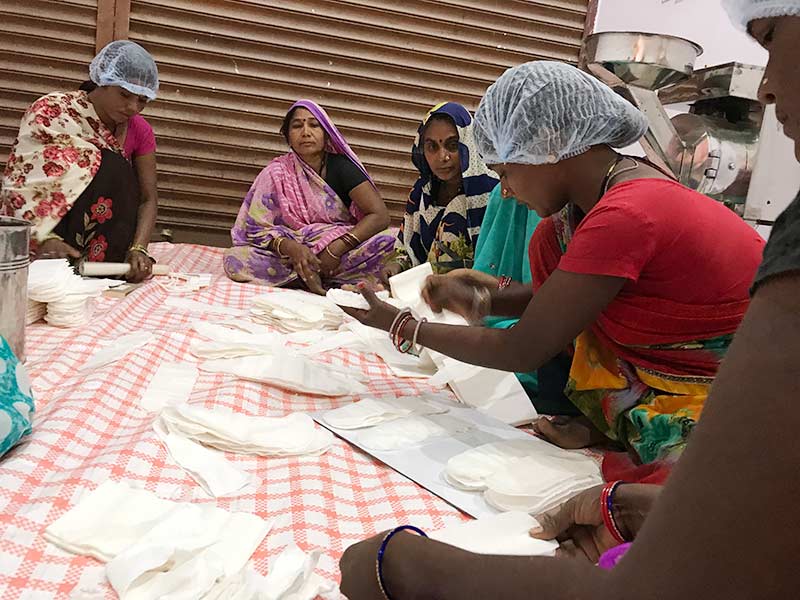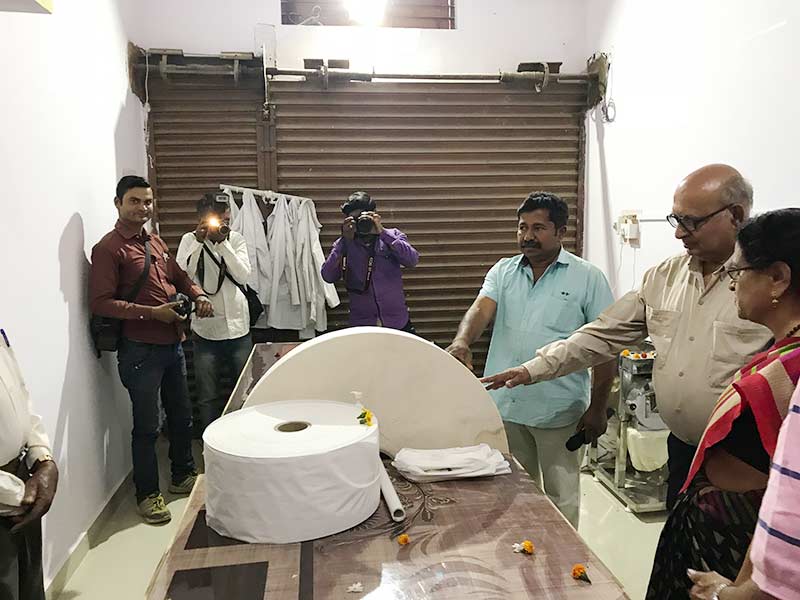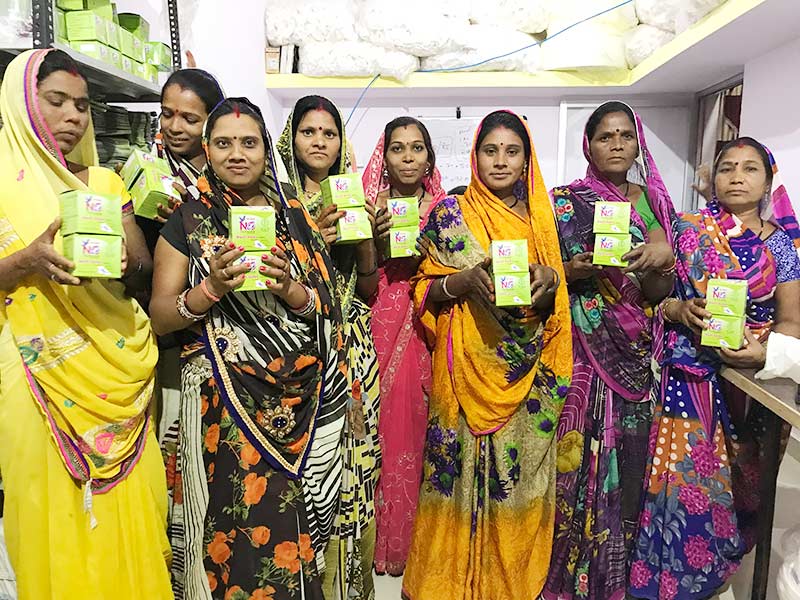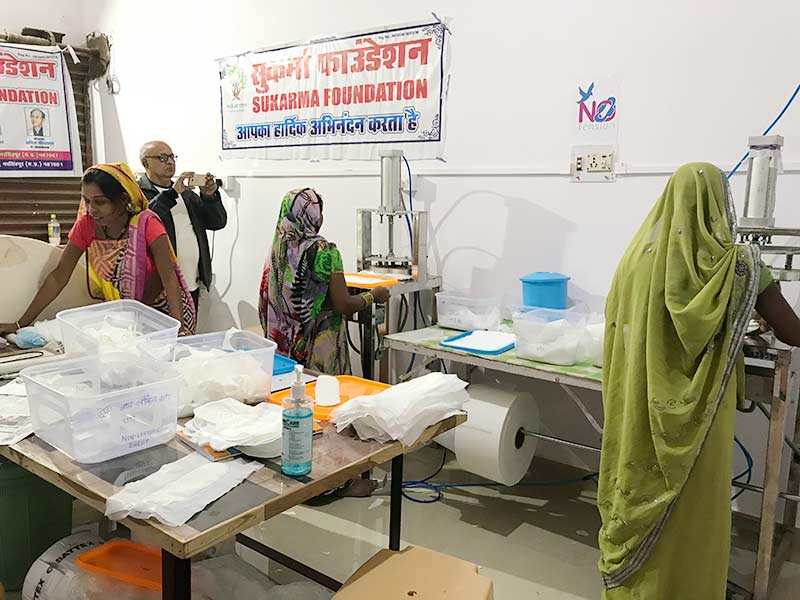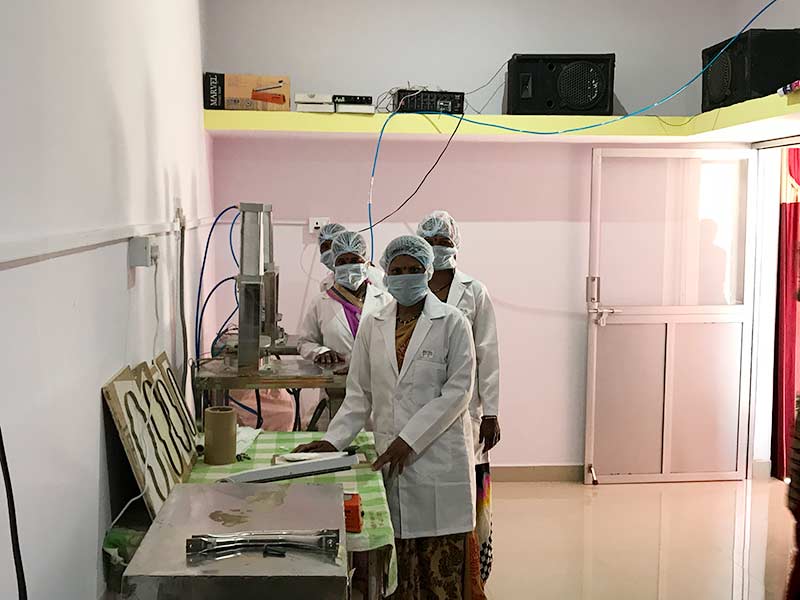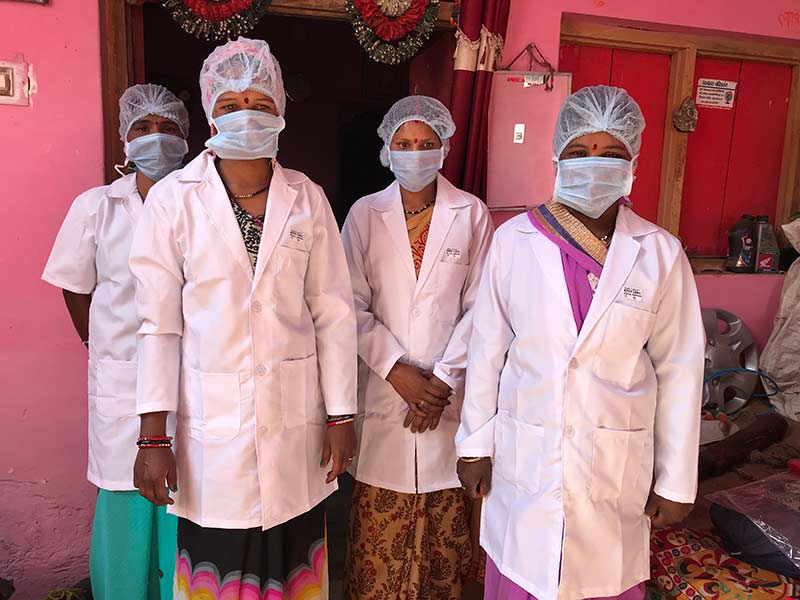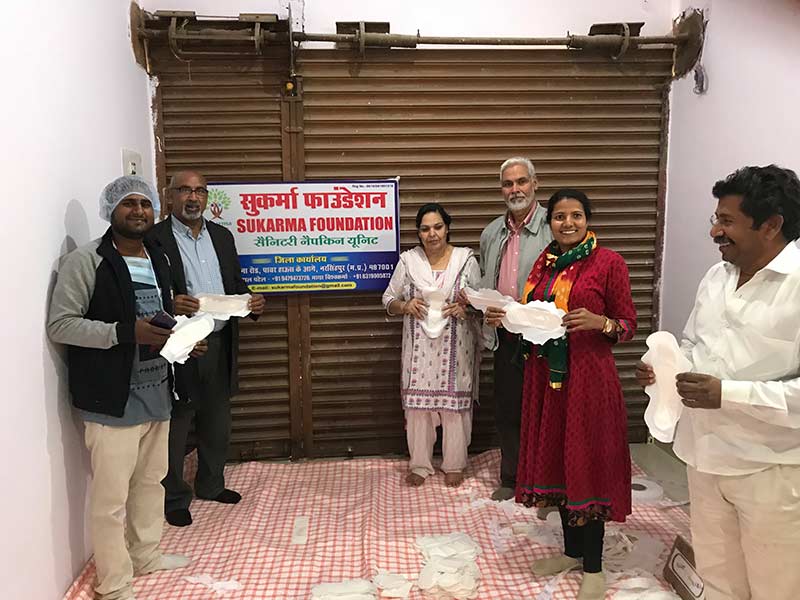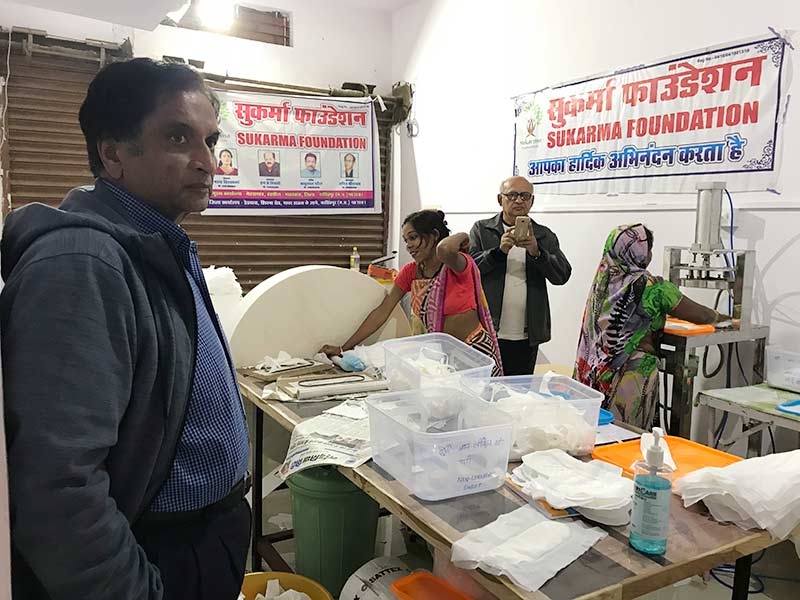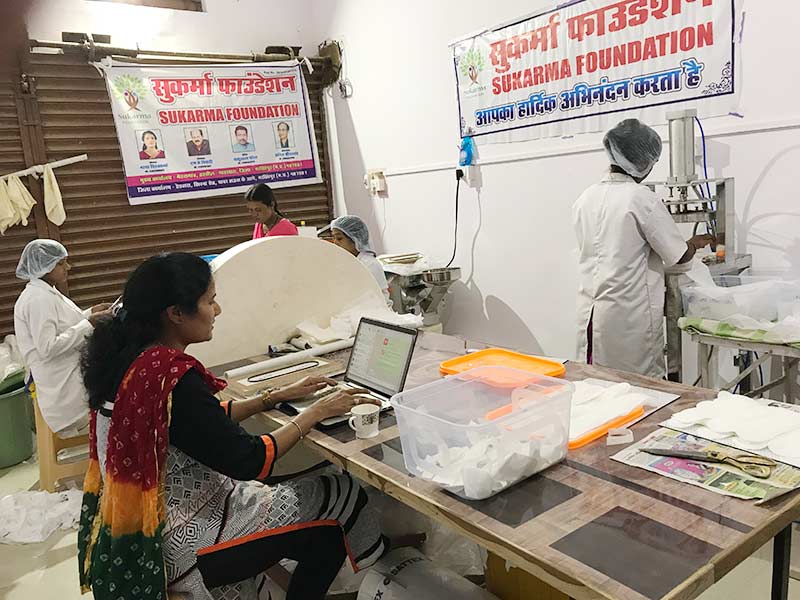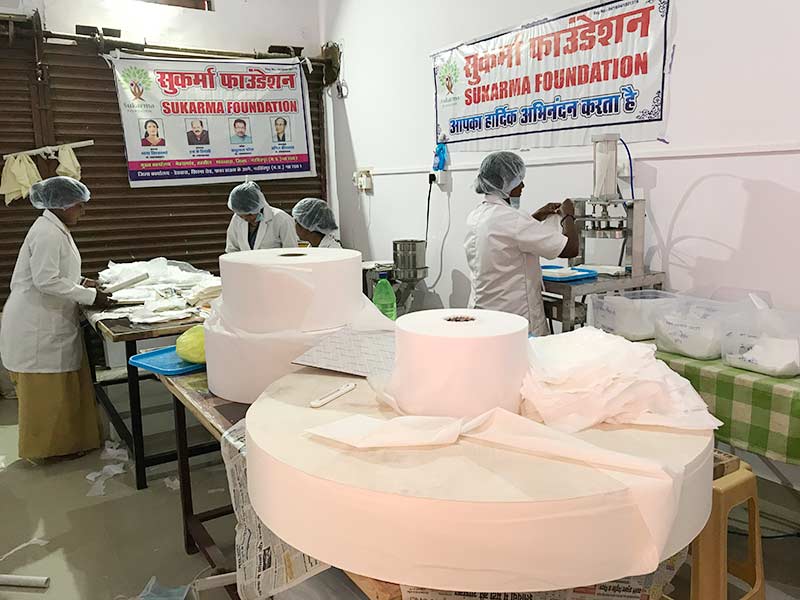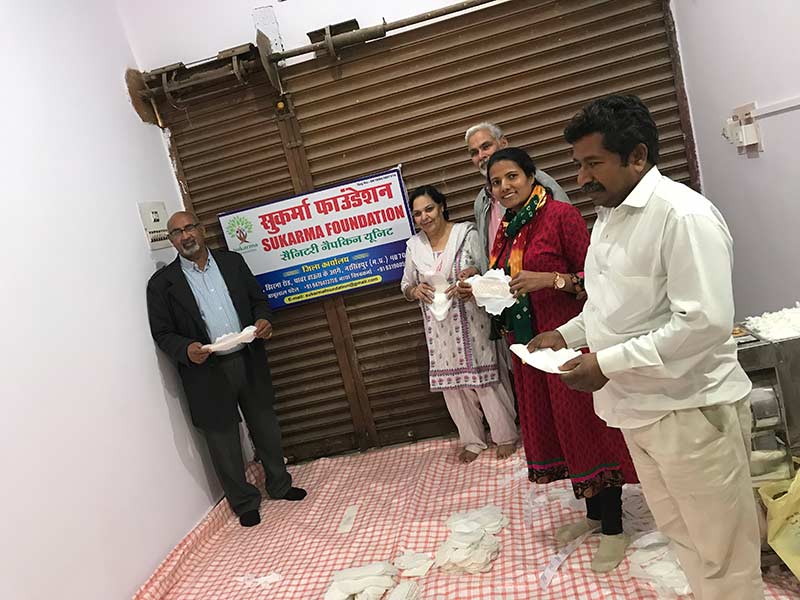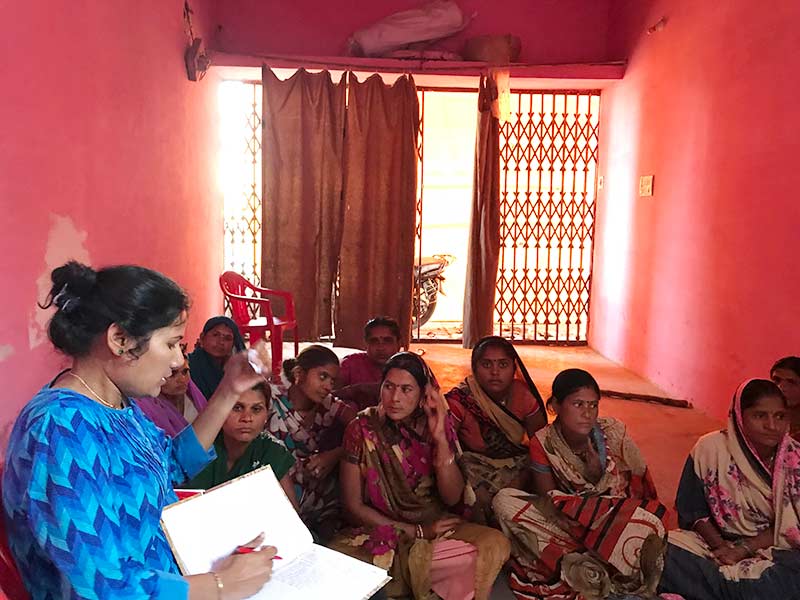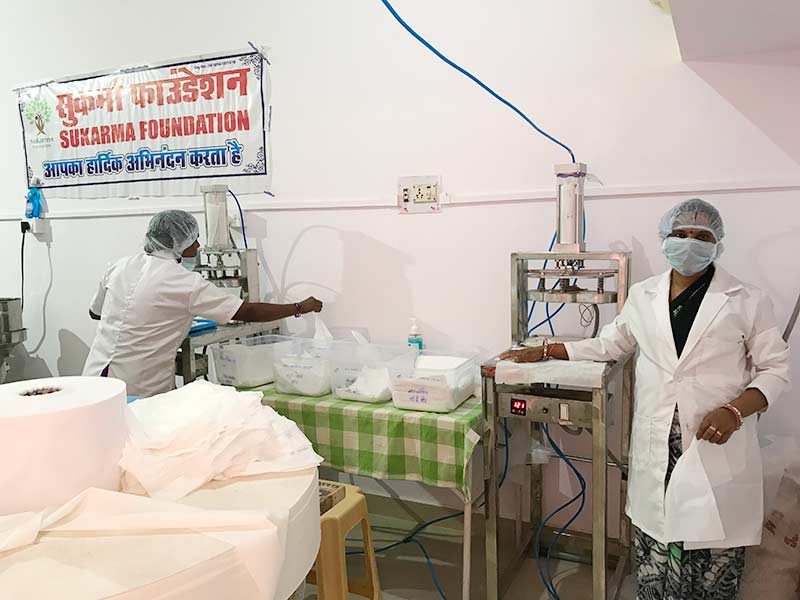A sizeable population of rural Madhya Pradesh lives on less than one USD a day i.e. about INR 72. An average sanitary napkin costs INR 6. Assuming that the woman will change her pad thrice a day to maintain optimal hygiene standards, she will spend INR 18 each day that she is menstruating. For thousands of families, this is a cost that they cannot bear. Circumstances do not allow them to perceive buying sanitary napkins as an investment or necessity; rather, they are a luxury they cannot afford.
Sukarma Foundation’s Sanitary Napkin Manufacturing Mini Factory located at Narsinghpur is changing all that. The mini factory is the result of two years of painstaking research and multiple visits to start-ups manufacturing sanitary napkins by the Chairperson of Sukarma Foundation.
With 10-12 women from local communities helming the manufacturing process, the pad-making factory has produced nearly 500,000 sanitary pads since it first began in November 2017. Rightly called ‘No Tension’, the cost of each pad is an affordable INR 2.9; nearly half the price of what’s available everywhere else in the market. This initiative complements the Menstrual Hygiene Awareness Campaigns well in that the ‘No Tension’ sanitary napkins provided to participants come from the mini factory.
Sukarma Foundation’s vision for the mini factory doesn’t end with access and affordability. The second most powerful change we wish to bring about is financially empowering women. The mini factory provides regular employment to women seeking an opportunity to grow and learn, to adapt. Here, they discuss ideas, break taboos, and plan a healthier future while skilfully manufacturing pads. They help create the change that we wish to see.
Join Team Sukarma as they empower the resourceful women of rural Madhya Pradesh through employment and access to affordable sanitary pads:
- Volunteer to supervise on-ground work.
- Monetary support for manufacturing pads.
- Funding for expanding and creating more mini factories.
- Funding for salaries of employed women.


